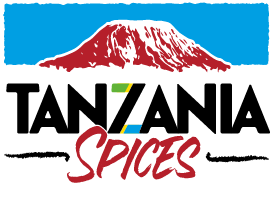Are you a spice producer wanting to apply for the Tanzania Spices label? Read on for commonly asked questions about the label and application process.
Who is eligible to use the label?
Stakeholders in the spices value chain consist of smallholder farmers, farmer associations, and processing and trading companies for exports. An informal network of middlemen are agents for local processors and overseas and regional importers.
All these actors who meet the qualifications will be issued the authorization to use the Tanzania Spices label. All companies are encouraged to use the label to promote the spice sector in Tanzania.
How long does the label approval process take?
Approval or refusal of authorization to use the label shall be made within seven (7) days from the date of submission of application.
How can I get product certification for compliance with the Tanzania Standards (TZS / ZBS)?
Send an application letter to the TBS or ZBS Director-General, requesting a product certification service. The reply will detail the procedure, costs and paperwork required.
This will be followed by an initial inspection by TBS / ZBS inspectors, who will also take a product sample. The inspector then prepares an initial report and a checklist of issues that you are required to amend. Product samples will be tested in the TBS/ZBS laboratories.
You will then be sent a test report. Both reports must show that your factory and production systems have no problems in order to gain a license/certificate. Any deficiencies will require you to make adjustments, followed by another inspection.
What is the validity period for the TZS/ZBS certificate?
The TZS and ZBS certificates are valid for one year only. At the end of each year, you can apply for renewal. This ensures that each certified client is inspected at least once a year.
Are there support schemes for TZS certifications for Micro, Small and Medium Entrepreneurs (MSMEs)?
Yes. Every year the Tanzanian government sets aside a certain amount of money to assist MSMEs applying for product certification to use the Tanzania Spices label.
Support includes waiving of TZS certification fees. Applicants will need to have an introduction letter from their nearest office of the Small Industries Development Organization. The letter should clearly describe the activities of the MSME.
How can I obtain the Tanzania Standards or Zanzibar Standards?
All Tanzania Standards (TZS) can be purchased from the TBS library or via the TBS website under the e-Service menu.
The entire collection of published standards can be searched on the TBS website via the TBS Standards Catalogue under the Standardization menu. You can search by title, standard number, product, or International Classification for Standards (ICS) number.
All Zanzibar Standards (ZS) can be purchased from the ZBS office. The entire collection of published standards will be soon on the ZBS website via the ZBS Standards. Catalogue under e-ZBS menu.
Is the label officially registered?
The Tanzania Spices Label is registered by the Business and Property Registration Agency (BPRA) and the Business Registration and Licensing Agency (BRELA). These are the relevant authorities for the registration of industrial property rights in Zanzibar and the Tanzania Mainland respectively.
Are processed and raw spice products allowed by the label?
In Tanzania, post-harvest value addition currently focuses on cleaning, drying, grading, and packaging for the production of whole products. Processing by SMEs is mainly for the domestic market. Dedicated processing facilities are currently inadequate for international standards.
In the short term, the label does only apply to whole spices. Spice products ground in powder form and spice blends or mixtures are not eligible except where they are allowed by a complementary label.
Can good quality imported spices be exported under the Tanzania Spices label?
No. Only spices produced in the United Republic of Tanzania (Mainland and Zanzibar) are eligible.
Is there any requirement to pay fees for using the Label?
All companies using the Label must pay an annual certification fee. The fee is currently set at 100,000.0 Tanzanian Shillings per product. The fee may be reviewed from time to time by the Label Steering Committee. The fee must be paid to the Label Custodian on the date of granting the authorization to use the Label (certification).

